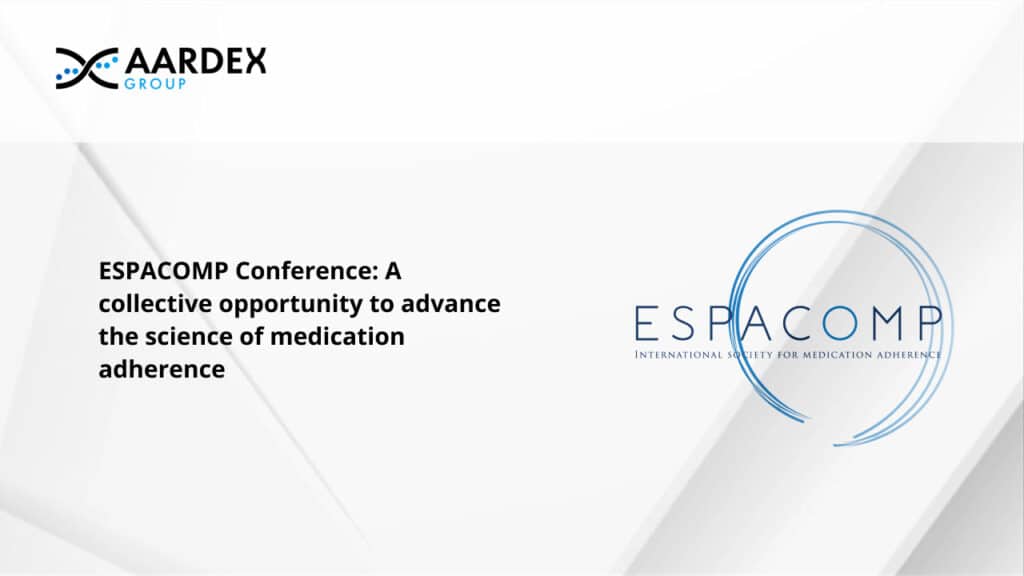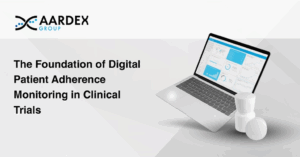It is perhaps ironic that Alexander Graham Bell, often singled out as the individual who invented the telephone, was a man who believed in the value of collective endeavour.
Indeed, Bell is quoted as saying: “Great discoveries and improvements invariably involve the cooperation of many minds.”
And it is in this vein that a diverse collection of minds will gather in Italy this November at the 28th ESPACOMP Conference. Taking place from 21-22 November at the University of Naples Federico II, the event is an annual calendar highlight for anyone with an interest in advancing the science of medication adherence.
The theme for this year’s conference – Precision dosing: Navigating adherence in drug development and clinical practice – provides a platform to discuss continuing challenges in the area of adherence and to explore opportunities for enhancing both treatment outcomes and patient safety through a focus on precision dosing.
Bringing people together with a collective purpose is fundamental to ESPACOMP’s identity and history. What today is a growing, global interprofessional community can trace its roots back to the Lowlands Symposium, an event organised by a group of scientists from Belgium and the Netherlands since 1996 to facilitate sharing of research on patient compliance and persistence with prescribed therapy.
AARDEX has been a supporter of the organisation ever since its inception. Today, CEO & Scientific Lead Bernard Vrijens, who was a member of the founding committee, is the current ESPACOMP President, and will be heavily involved in organisation of the annual conference. Supported by members of the Executive Committee, Bernard will look to ensure the event program delivers valuable opportunities for promoting and advancing the science of medication taking.
In particular, there are three sub-themes under the conference’s main heading that will be explored by speakers at the event in depth. They are:
- Acknowledging non-adherence: A crucial step in drug development
-
- Understanding the impact of non-adherence on drug-trial outcomes.
- Implementing reliable measures to assess and address non-adherence.
- Optimizing dose findings by accounting for adherence variability – optimizing a drug’s forgiveness.
- Integrating implementation science methods throughout the pharma research pipeline to enhance value creation.
- Mitigating inappropriate prescribing: Rational dosing practices in medical settings
-
- Recognizing the risks of unnecessary dose escalation in non-adherent patients.
- Identification of sub-optimal adherence in clinical care.
- Strategies for dose adjustment and individualized treatment plans.
- Enhancing medication safety through patient education and monitoring.
- Considering the patient’s treatment beliefs and illness perceptions.
- Adherence profiling (concepts, research, tools, applications etc).
- Navigating polypharmacy: Ensuring safe medication use in complex regimens
-
- Importance of medication reviews in polypharmacy management.
- Identifying and addressing drug interactions and duplications.
- Promoting patient-centered approaches to optimize medication regimens.
The call for abstracts is open until 15 July, with further information – including formatting guidelines – available on the ESPACOMP website.
https://www.espacomp.eu/annual-meetings/
Being able to explore these matters in such detail is a key reason that the ESPACOMP conference has grown in popularity and scale over the years. However, it is also true that non-adherence continues to pose significant challenges, both in drug trials and in clinical practice. While consensus remains over the importance of optimizing drug dosages to allow for effective treatment outcomes and to enhance patient safety, undesirable approaches and unresolved issues relating to adherence mean that overdosing, unnecessary dose escalation, and the risks associated with polypharmacy must still be addressed.
As such, ESPACOMP’s role in fostering interdisciplinary dialogue, facilitating the sharing of best practice and establishing commonly agreed protocols has only taken on greater significance. This is exemplified by a variety of successful projects, in which the association has played a key role, including:
- ABC Taxonomy
A definitive description of the three-step medication adherence model, designed to facilitate measurement and analysis. The ABC Taxonomy was developed as part of the EU-funded project Ascertaining Barriers for Compliance: policies for safe, effective and cost-effective use of medicines in Europe. Since its original publication in English, ESPACOMP has coordinated validated translations into Czech, German, Spanish, French, Italian and Portuguese.
https://www.espacomp.eu/project/abc-taxonomy/
- EMERGE Guidelines
Guidelines developed by a working group of ESPACOMP members to support the reporting of medication adherence research studies. Published in 2018 in the Annals of Internal Medicine, the guidelines are designed to be used in conjunction with broader research reporting guidelines from the EQUATOR Network, such as CONSORT, STROBE, and PRISMA.
https://www.espacomp.eu/project/emerge-guidelines/
- TEOS Analysis Framework
A framework for constructing operational definitions of medication adherence based on Timelines, Events, Objectives, Sources (TEOS). This project is focused on the objective of developing practical guidance for computing adherence from electronic monitoring, electronic dispensing / prescribing, and self-report data.
https://www.espacomp.eu/project/adherence-measurement-from-raw-data-to-adherence-scores/
Building on its collegiate philosophy, ESPACOMP is also looking to extend its reach beyond the association’s immediate stakeholders. To achieve this, it has introduced a corporate membership program with a view to welcoming involvement from pharma leaders across the industry who are interested in the issues and challenges surrounding medication adherence.
This diversity of experience and knowledge will be in evidence at the annual conference in November, where attendees will be drawn from a wide range of healthcare professions, including pharmacy, medicine, nursing and psychology, with representation from a variety of roles, including international adherence researchers, pharmacoepidemiologists and statisticians – from both academia and industry.
It promises to be an informative and eye-opening event, and with so many great minds collectively focused on the topic of adherence, the conditions for “great discoveries and improvements” look promising. No doubt Alexander Graham Bell – and also his co-inventors – would approve.



